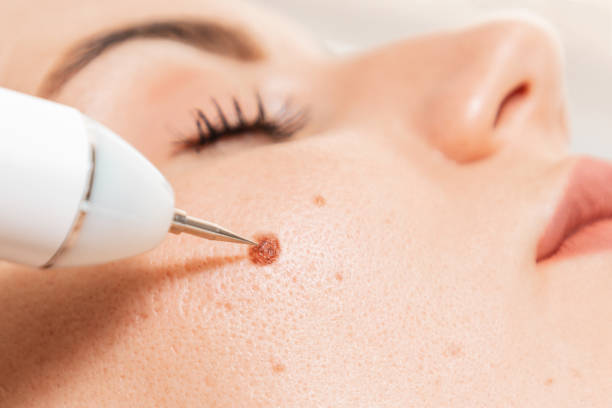Hyperpigmentation is a common skin condition that affects many people. It is characterized by dark, discolored patches of skin that can appear on the face, neck, chest, and hands. The condition is caused by an excess production of melanin, the pigment that gives color to the skin. Hyperpigmentation can be caused by a variety of factors, including sun exposure, hormonal changes, and certain medications. It can also be a side effect of certain skin conditions, such as acne.
Hyperpigmentation can be a frustrating and embarrassing condition, but there are treatments available that can help. In this article, we will explore the best skin treatments for even skin tone and how to get rid of hyperpigmentation.
Sunscreen as a Preventative Measure
One of the most important things you can do to prevent hyperpigmentation is to protect your skin from the sun. Sun exposure is a major cause of hyperpigmentation, and it can make existing discoloration worse.
To protect your skin, it is important to use a sunscreen with at least SPF 30 every day, even on cloudy days. Look for a sunscreen that is water-resistant and contains both UVA and UVB protection. It's also a good idea to avoid sun exposure during the peak hours of 10 am to 4 pm, when the sun's rays are the strongest.
Topical Treatments for Hyperpigmentation
Topical treatments, such as creams and serums, can help to reduce the appearance of hyperpigmentation. There are several ingredients that are known to be effective in treating hyperpigmentation, including:
Hydroquinone
This is a lightening agent that is commonly used to treat hyperpigmentation. It works by inhibiting the production of melanin.
Kojic Acid
This is another lightening agent that is derived from mushrooms. It works by inhibiting the production of melanin.

Vitamin C
This is a powerful antioxidant that can help to brighten the skin and reduce the appearance of hyperpigmentation.
Retinoids
These are derivatives of vitamin A and are known to be effective in treating hyperpigmentation. They work by stimulating cell turnover, which can help to lighten discoloration.
Chemical Peels and Microdermabrasion
Chemical peels are a type of exfoliating treatment that can help to reduce the appearance of hyperpigmentation. They work by removing the top layer of dead skin cells, which can reveal brighter, more even-toned skin.
Chemical peels are available in different strengths, and the type of peel that is right for you will depend on your individual skin type and the severity of your hyperpigmentation. A dermatologist or skincare professional can help you to choose the best peel for your skin.
Microdermabrasion is a type of exfoliating treatment that uses tiny crystals to remove the top layer of dead skin cells. It can be used to treat hyperpigmentation, as well as other skin conditions, such as fine lines and wrinkles.
Microdermabrasion can be performed by a skincare professional or at home with an at-home microdermabrasion kit. It's a gentle treatment that can be used on all skin types and can be performed on the face, neck, chest, and hands.
Laser Treatments for Hyperpigmentation
Laser treatments, such as intense pulsed light (IPL) therapy, are a more invasive option for treating hyperpigmentation. They work by targeting the melanin in the skin, which can help to lighten discoloration and improve overall skin tone.
Laser treatments can be performed by a dermatologist or skincare professional and typically require several sessions for optimal results. It's important to note that laser treatments can be quite expensive and may not be covered by insurance. It's also important to have a consultation with the professional prior to treatment to determine the best course of action and to determine if the treatment is suitable for you.
Natural Remedies for Hyperpigmentation
There are also several natural remedies that can be used to treat hyperpigmentation. These include:
-
Lemon juice: The acidity in lemon juice can help to lighten discoloration. Simply apply lemon juice to the affected area and leave it on for 10-15 minutes before rinsing off.
-
Aloe vera: Aloe vera is known for its soothing and healing properties. It can be applied topically to the affected area to help reduce the appearance of hyperpigmentation.
-
Turmeric: Turmeric is a natural anti-inflammatory that can help to lighten discoloration. It can be used in a face mask or added to your daily skincare routine.
-
Licorice extract: Licorice extract is known for its lightening properties and can be found in several skincare products.
It's important to note that while these natural remedies may be beneficial, it's important to do a patch test before applying it all over the face, to see how your skin reacts to it.
In conclusion, hyperpigmentation is a common skin condition that can be caused by a variety of factors. However, there are several treatments available that can help to reduce the appearance of hyperpigmentation and improve overall skin tone. It's important to consult with a skincare professional or dermatologist to determine the best course of action for your individual skin type and the severity of your hyperpigmentation. With the right treatment plan, you can say goodbye to discolored patches and hello to even, radiant skin.












